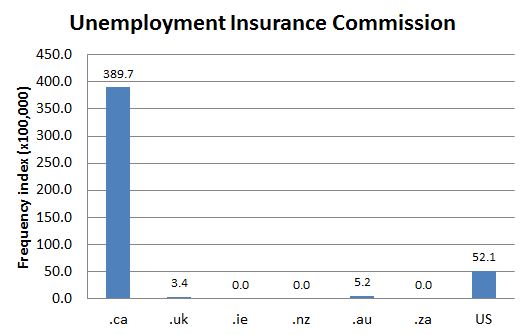DCHP-2
Unemployment Insurance Commission UIC DCHP-2 (November 2016)
n. — historical, Administration
the commission responsible for overseeing unemployment insurance in Canada according the the Unemployment Insurance Act.
Type: 1. Origin — The Unemployment Insurance Commission, or UIC, was created as a result of the Unemployment Insurance Act of 1940 (Campeau 2004: 66). The UIC consisted of three federally appointed commissioners: a chief commissioner, a worker representative and an employer representative, thus representing government, labour and employers (see the 1943 quotation). UIC commissioners held the authority to both make and enforce regulations of the Unemployment Insurance Act (see Maple Leaf Web reference) and were responsible for reporting to the minister of labour (Campeau 2004: 66).
Although the name of the commission is generally recognized as being introduced in the 1940 Unemployment Insurance Act, the term was used earlier (see the 1935 quotations); these examples coincide with the Conservative Government's passing of the "Employment and Social Insurance Act" in 1935 by Prime Minister R. B. Bennett (see Maple Leaf Web reference).
The program is now overseen by the Canada Employment Insurance Commission, or the CEIC (see the 2013 and 2014 quotations). As seen in Chart 1, the term is most frequently used in Canada; note that many of the US sources appear to be referring to the Canadian system or the Unemployment Insurance Commission of Canada.See also: employment insurance unemployment insurance UIC SIN
References:
- Campeau (2004)
- Maple Leaf Web "Employment Insurance in Canada: History, Structure and Issues" Accessed 14 Jul. 2014
Images:
Chart 1: Internet Domain Search, 15 Jul. 2014
